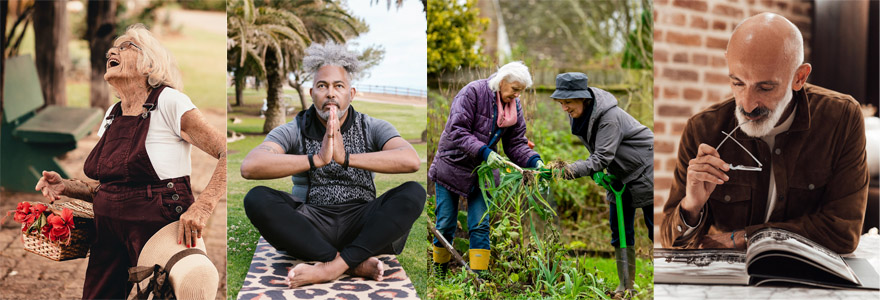Sense of Self: Leisure helps older adults with relocation transition
 Images from Pexels.
Images from Pexels.
Older adults may face a number of difficult transitions in late life, such as retirement, health decline and loss of a spouse. Leisure has been known to help adults cope with these changes, as a way of maintaining and continuing their sense of identity. Moving to a new home may be another transition for older adults during which their identity is threatened, affecting their ability to develop a sense of home.
An integrative review from Western University PhD candidate in Health and Rehabilitation Sciences (Health and Aging field), Kristin Prentice, and professors Carri Hand (supervisor), School of Occupational therapy, Laura Misener, School of Kinesiology, and Jeff Hopkins, Department of Geography, explored how leisure, sense of home, and identity were inter-related for older adults moving to new homes. The review of seventeen studies, published in Activities, Adaption & Aging, found that study participants often wanted their lives and activities to remain the same as in their previous homes, including leisure activities.
Older adults often adapt to a move through continuing previous leisure activities and maintaining engagement with their social networks. They may go through a process of coming to terms with the many aspects of the transition (altered roles and social ties, personal losses including illness, loss of routine, and physical changes, etc.) and choose to maintain their leisure activities and social connections in order to establish a new sense of home and self.
Creating more supportive leisure opportunities for older adults who are experiencing multiple transitions, and the development of social spaces in neighbourhoods to assist those who are new create ties to place would benefit older adults by helping them maintain identity and develop their sense of home.
Lead author Prentice shares the potential imact of this reseach in our communities, explaining that, "...practitioners can take into consideration the multiple transitions that older adults may be processing when they join these leisure programs, such as recently moving to the city or experiencing grief due to the loss of their previous social networks, home, spouse or family members. Leisure programs that are designed to support older adults enduring multiple transitions could help create a safe and welcoming social space for leisure engagement."

